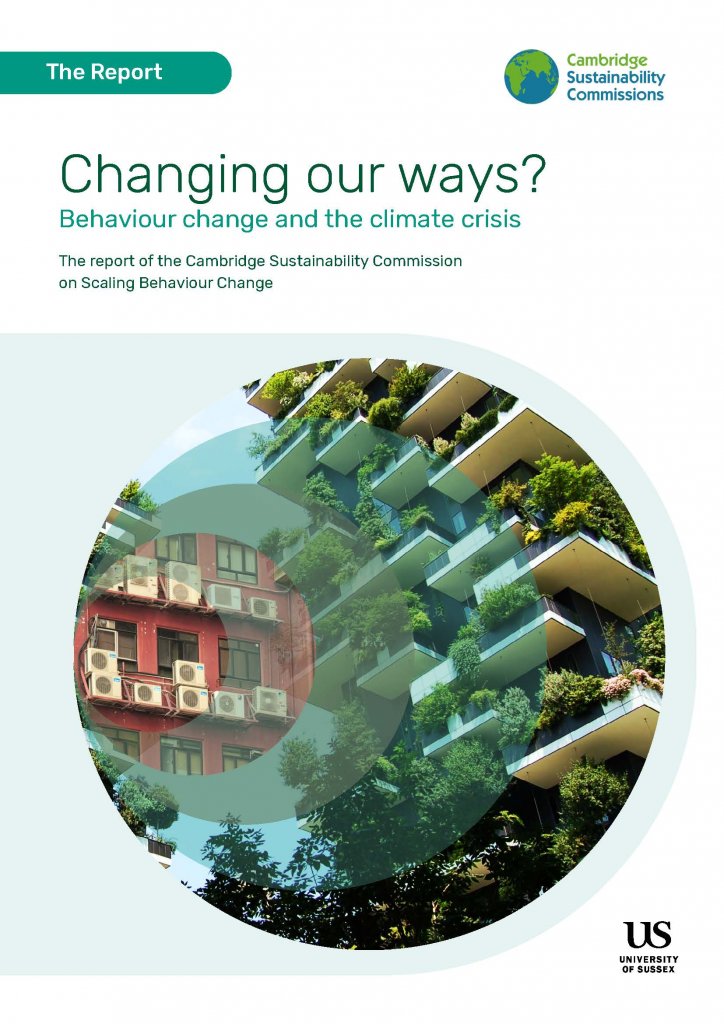
This article is part of the ISC’s Transform21 series, which features resources from our network of scientists and change-makers to help inform the urgent transformations needed to achieve climate and biodiversity goals.
As countries around the world prepare plans to reduce emissions in the lead-up to COP 26, a major new report by the Cambridge Sustainability Commission on Scaling Behaviour Change calls on policy-makers to target the world’s ‘polluter elite’ in order to trigger a shift to more sustainable lifestyles, and to provide affordable low-carbon alternatives for poorer households.
Reaching the goals of the Paris Agreement and curbing warming below 1.5°C will require widespread behavioural change. But responsibility for the climate crisis is not evenly shared. Evidence reviewed by the Cambridge Commission shows that over the period 1990–2015, nearly half of the growth in absolute global emissions was due to the richest 10%, with the wealthiest 5% alone contributing over a third (37%).
That’s why the report argues that in order to really scale up behavioural change, it’s the wealthiest citizens – the ‘Polluter elite’ – that must make the most dramatic changes to their lifestyles. To be in with a chance of meeting the 1.5°C target, the richest 1% of the global population needs to reduce their emissions by a factor of at least 30 by 2030, while the poorest 50% of humanity could increase their emissions by three-times their current level.
The report shows that in the UK – the host country for COP26 – a combination of efforts to dramatically reduce the carbon footprints of the richest and to build affordable and low carbon infrastructures around housing, transport and energy for poorer households offers the best way forward. What’s more, the commissioners argue that far from being competing approaches, changes to individual behaviour and systemic change are linked and can be positively self-reinforcing. This kind of ‘social buy-in’, or sense of collective effort, is essential for accelerating transitions to a low-carbon economy, argues the report.
“If change across society is to be brought about at the speed and scale required to meet agreed climate targets we need to shrink and share: reduce carbon budgets and share more equally. To radically reduce our emissions, governments must look closely at the lifestyles and behaviours of the most affluent in society – the ‘polluter elite’ – who travel the most, own the largest homes and can often pay for the privilege of polluting. Not only will targeting the polluter elite deliver substantial emissions savings, but it will also show wider society that we really are all in this together and that the transition to a low-carbon society must be fair and just – with all of us pulling our weight.”
Professor Peter Newell, lead author of the Commission’s report
In conclusion, the Commission argues that discussions of behavioural change must tackle the root causes of over-consumption of carbon, such as advertising that glamourises frequent air travel or large cars. The report includes a number of practical steps for targetting high-emission lifestyles, such as frequent flyer levies, and for making low-carbon choices easier for the poor, such as affordable electric public transport, and community energy schemes.
The Cambridge Sustainability Commission on Scaling Behaviour Change is made up of 31 leading scholars and practitioners of sustainable behaviour change. Commissioners include sociologists, psychologists, natural scientists and economists, political economists and specialists in technology and innovation from different regions including Asia, Africa, Latin America, Europe and North America. ISC Chief Executive Officer Heide Hackmann is a commissioner. The report was led by Peter Newell, Freddie Daley and Michelle Twena, at the University of Sussex, UK.

Changing our ways?
Behaviour change and the climate crisis
Cambridge Sustainability Commission
on Scaling Behaviour Change. 2021. Changing our ways?
Behaviour change and the climate crisis
The report will be launched in a webinar taking place at 16:00 CET on 13 April 2021. Find out more and register.
Media contact: Peter Newell [email protected]
Photo by Bing Hui Yau on Unsplash.